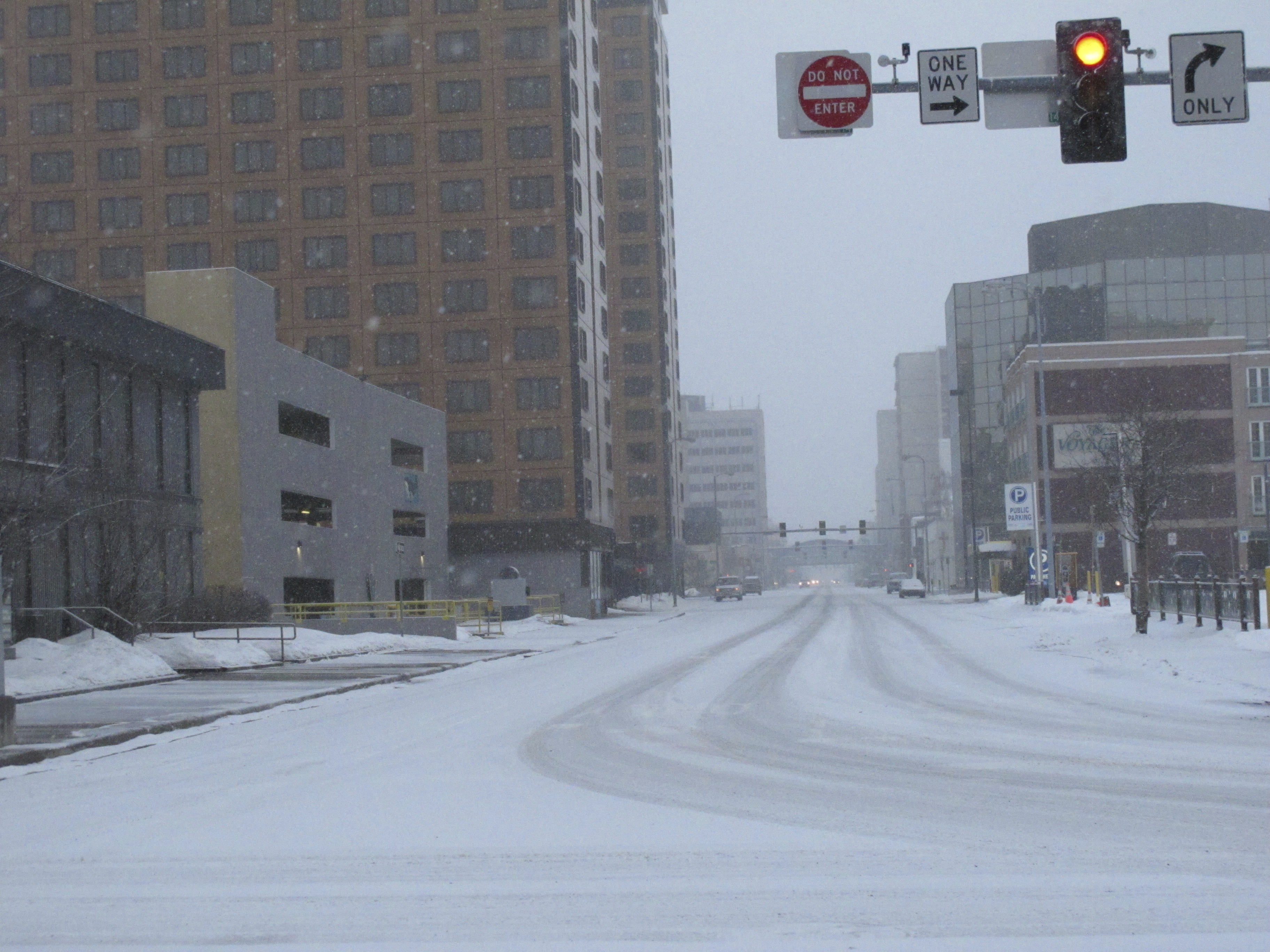3-D printing and snowmobiles helped Alaska stave off coronavirus testing shortage


A free daily email with the biggest news stories of the day – and the best features from TheWeek.com
You are now subscribed
Your newsletter sign-up was successful
When coronavirus cases were surging in the United States earlier this summer, Alaska was testing more people than any other state in America, The Wall Street Journal reports. It's now second, behind only Rhode Island, and it has the lowest number of COVID-19 deaths per capita in the nation. Sure, Alaska's population of 730,000 is relatively small, but testing is still a challenge considering the state's vastness. So, Alaskans got creative, the Journal reports.
Coronavirus testing samples need to be refrigerated, a difficult task when moving them from remote communities across "the barren expanses of Alaska." To keep them cold, some tests taken in fishing communities were placed in refrigerated boxes normally used to transport fish, while others were reportedly kept cool in the noses of airplanes. Snowmobiles and trucks were also used to transport the samples.
The big commercial laboratories conducting many tests in the U.S. don't operate in Alaska, the Journal notes, and the state subsequently had a tough time getting swabs. The solution was to strike a contract with a local manufacturer that used 3-D printing technology to produce plastic swabs, which were then processed in Alaska's own public health labs.
The Week
Escape your echo chamber. Get the facts behind the news, plus analysis from multiple perspectives.

Sign up for The Week's Free Newsletters
From our morning news briefing to a weekly Good News Newsletter, get the best of The Week delivered directly to your inbox.
From our morning news briefing to a weekly Good News Newsletter, get the best of The Week delivered directly to your inbox.
Some other examples of ingenuity include when the state's largest rural airline declared bankruptcy and grounded its fleet in April. Yukon-Kuskokwim Health Corp. — a tribal organization that administers health care to Alaskans living in rural communities — scrambled to charter private flights and trained local health care workers to administer tests to account for the tests and samples it couldn't deliver without the aid of the airline.
The state has also increasingly deployed rapid tests in rural communities to avoid what would otherwise be lengthy turnaround times. Read more at The Wall Street Journal.
A free daily email with the biggest news stories of the day – and the best features from TheWeek.com
Tim is a staff writer at The Week and has contributed to Bedford and Bowery and The New York Transatlantic. He is a graduate of Occidental College and NYU's journalism school. Tim enjoys writing about baseball, Europe, and extinct megafauna. He lives in New York City.
-
 Political cartoons for February 11
Political cartoons for February 11Cartoons Wednesday's political cartoons include erasing Epstein, the national debt, and disease on demand
-
 The Week contest: Lubricant larceny
The Week contest: Lubricant larcenyPuzzles and Quizzes
-
 Can the UK take any more rain?
Can the UK take any more rain?Today’s Big Question An Atlantic jet stream is ‘stuck’ over British skies, leading to ‘biblical’ downpours and more than 40 consecutive days of rain in some areas
-
 Trump HHS slashes advised child vaccinations
Trump HHS slashes advised child vaccinationsSpeed Read In a widely condemned move, the CDC will now recommend that children get vaccinated against 11 communicable diseases, not 17
-
 FDA OKs generic abortion pill, riling the right
FDA OKs generic abortion pill, riling the rightSpeed Read The drug in question is a generic version of mifepristone, used to carry out two-thirds of US abortions
-
 RFK Jr. vaccine panel advises restricting MMRV shot
RFK Jr. vaccine panel advises restricting MMRV shotSpeed Read The committee voted to restrict access to a childhood vaccine against chickenpox
-
 Texas declares end to measles outbreak
Texas declares end to measles outbreakSpeed Read The vaccine-preventable disease is still spreading in neighboring states, Mexico and Canada
-
 RFK Jr. shuts down mRNA vaccine funding at agency
RFK Jr. shuts down mRNA vaccine funding at agencySpeed Read The decision canceled or modified 22 projects, primarily for work on vaccines and therapeutics for respiratory viruses
-
 Measles cases surge to 33-year high
Measles cases surge to 33-year highSpeed Read The infection was declared eliminated from the US in 2000 but has seen a resurgence amid vaccine hesitancy
-
 Kennedy's vaccine panel signals skepticism, change
Kennedy's vaccine panel signals skepticism, changeSpeed Read RFK Jr.'s new vaccine advisory board intends to make changes to the decades-old US immunization system
-
 Kennedy ousts entire CDC vaccine advisory panel
Kennedy ousts entire CDC vaccine advisory panelspeed read Health Secretary RFK Jr. is a longtime anti-vaccine activist who has criticized the panel of experts
